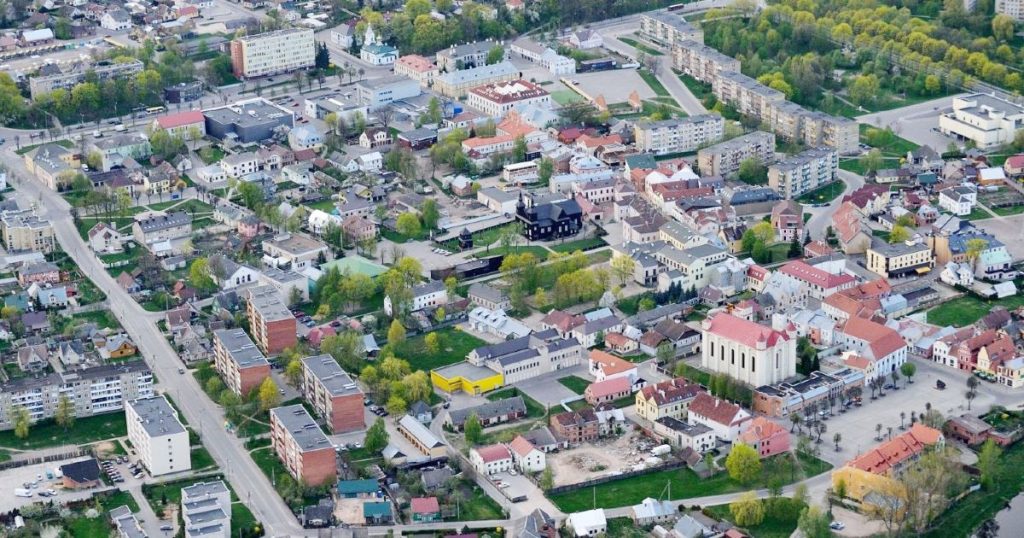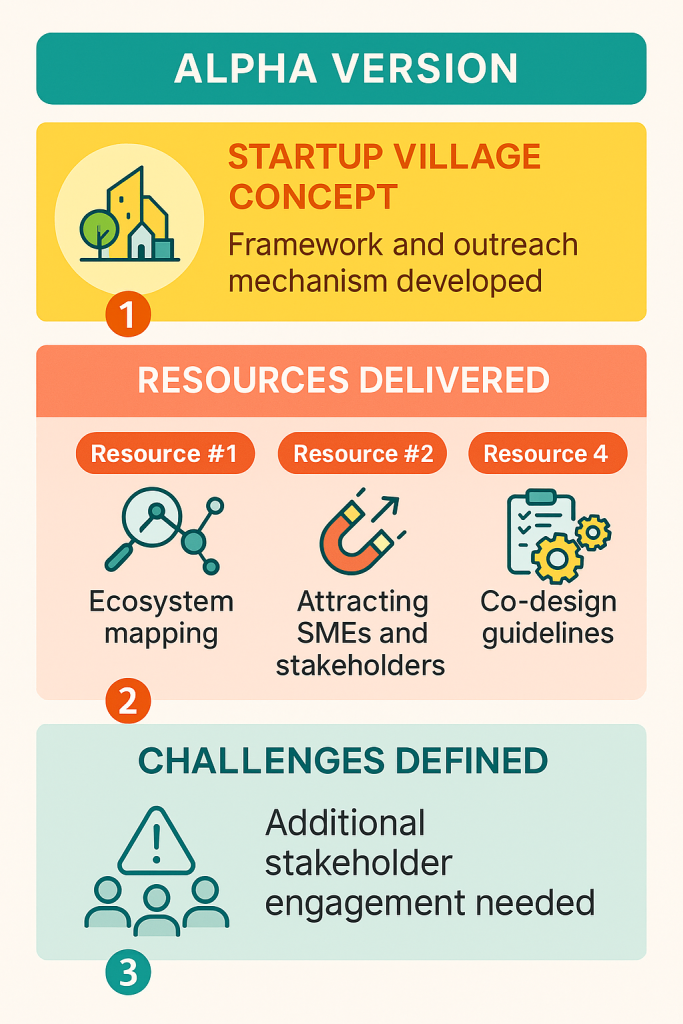User Engagement, Empowerment, Society & Territorial Awareness
Strengthening Territorial Awareness through Innovation
Within the User Engagement, Empowerment, Society & Territorial Awareness domain, RUE#4 addresses how rural communities can enhance their capacity to innovate, collaborate, and take ownership of their territorial development. In many European regions, smaller municipalities experience declining engagement and limited access to innovation ecosystems. To counter this, the Lithuanian Rural-Urban Co-Creation Lab, led by AgriFood Lithuania DIH and Kėdainiai District Municipality Administration, is piloting the Startup Village — an ecosystem model that promotes entrepreneurship, place-based innovation, digital readiness, and local cooperation. The Startup Village represents RURBANIVE’s social dimension: empowering communities to become active participants in shaping their own well-being and resilience.
The Startup Village Concept
The Startup Village is the central outcome of RUE#4. It is conceived as a framework for local entrepreneurship and innovation, developed and tested in cooperation between AgriFood Lithuania DIH and the Kėdainiai Municipality. As documented in Deliverable D3.1 (Figures 17–19), it is being implemented through a stepwise design process, combining ecosystem mapping, outreach mechanisms, and participatory feedback loops.
The Startup Village comprises the following key elements:
- A local innovation framework that supports entrepreneurship and experimentation within rural and semi-urban environments.
- Digital components that serve as access points for information, networking, and collaboration in the agrifood and green-tech sectors.
- Capacity-building and training activities designed to improve digital literacy and innovation skills.
- Participatory mechanisms that strengthen awareness of local resources and encourage engagement with territorial development.
- An iterative evaluation process to refine the model and enable its adaptation by other municipalities in future project stages.
Participatory Design and Co-Creation
The Startup Village is being developed under the RURBANIVE co-creation framework, which integrates feedback from local actors throughout the design cycle. Deliverable D3.1 (Figures 18 and 19) documents bilateral meetings between AFL and the Kėdainiai Municipality, during which the planning, resource mapping, and ecosystem-building steps were defined. These interactions ensure that the Startup Village reflects the local context and institutional capacities of the pilot region, in line with the participatory principles applied across all Rural-Urban Co-Creation Labs.
Expected Outcomes and Impact
The Startup Village constitutes both the main output and the demonstration environment of RUE#4. It integrates the following characteristics, each corresponding to objectives defined in Deliverable D3.1:
- A structured model for fostering entrepreneurship and innovation at the municipal level.
- Embedded digital functions for networking and knowledge exchange.
- Activities aimed at enhancing digital skills and motivation among participants.
- Participatory approaches that promote awareness of local assets and collaboration.
- A tested, adaptable framework allowing replication in other European rural-urban contexts.
Through these features, the Startup Village embodies RURBANIVE’s ambition to connect technological innovation with social inclusion — enabling territories like Kėdainiai to become active nodes within Europe’s evolving rural-urban innovation fabric.
Integration within RURBANIVE
RUE#4 will be integrated into the RURBANIVE Community Store as a reference model for user engagement and territorial empowerment. The experience gained through the Lithuanian pilot will inform future Open Call projects under the same domain, providing tested guidance on how local innovation frameworks can nurture participation, entrepreneurship, and cross-sector cooperation. By anchoring innovation within the local fabric rather than importing it from outside, RUE#4 demonstrates that empowerment begins with recognition — of territory, of potential, and of the collective ability to shape both.






